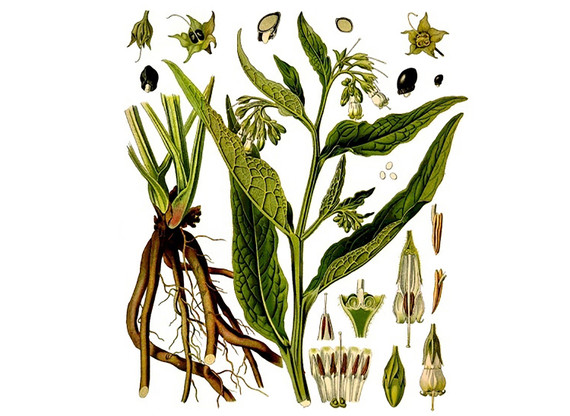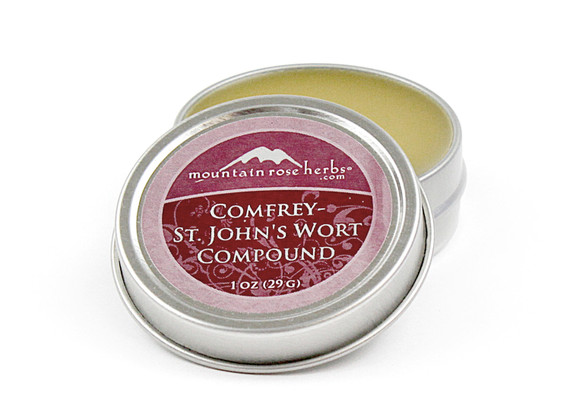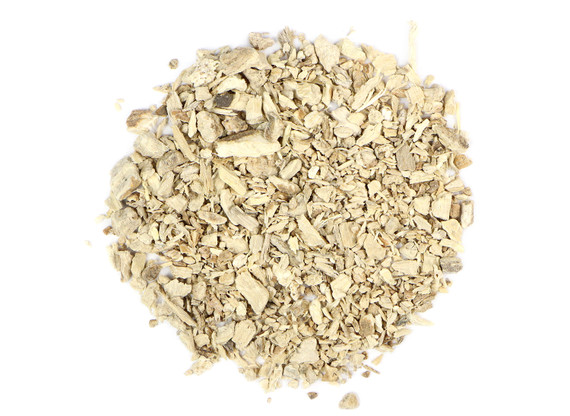For thousands of years, comfrey root has been highly regarded in traditional European practices for its healthful properties in topical preparations. Symphytum officinale is native to Europe and temperate Asia but is now naturalized worldwide. The plant has large, hairy leaves, a scorpioid inflorescence of bell-shaped flowers, and black roots.
A member of the Borage or Boraginaceae family, comfrey's relatives include both borage (Borago sp.) and heliotrope (Heliotropium sp.). The Symphytum genus contains about 35 species, all of which can be used interchangeably, although pyrrolizidine alkaloid content varies between species and are highest in Russian comfrey (S. x uplandicum) and prickly comfrey or (S. asperum). Comfrey has large, rough, hairy, and lance-shaped leaves with whitish, pink, or purple flower spikes which have a slight heliotrope like curl typical of this family. It is native to much of Europe, and various regions in Asia such as the Caucasus, Kazakhstan, Siberia, and Turkey, and is commonly found as a weed in temperate northern latitudes.
Precautions
Not for internal use. Do not apply to broken or abraded skin. Do not use when nursing. We recommend that you consult with a qualified healthcare practitioner before using herbal products, particularly if you are pregnant, nursing, or on any medications.
This information has not been evaluated by the Food and Drug Administration. This product is not intended to diagnose, treat, cure, or prevent any disease. For educational purposes only.












